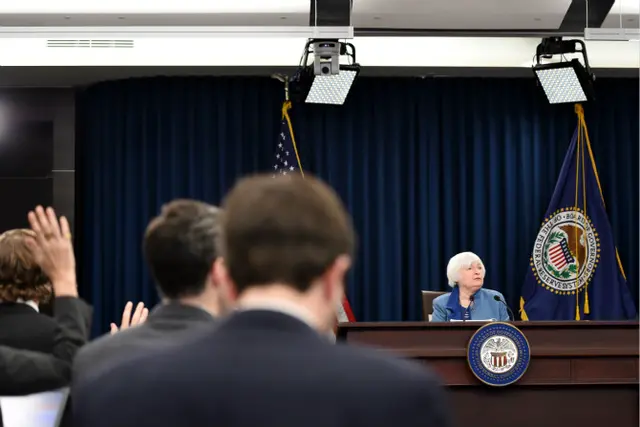The U.S. Federal Reserve on Wednesday raised the benchmark interest rate by 25 basis points to a range of 1.50-3.75 percent and indicated a faster rate hike pace next year, which triggered significant adjustments in global financial markets.
As the biggest economy and a main issuer of reserve currencies, it is advisable for the United States to attach full importance to the possible spillover of its decision, and coordinate with other major economies on macro policies.
According to official statistics, the U.S. economy accounts for some 22 percent of the world gross national product, and the greenback is used for 60-80 percent of international payment.
With the economic weight and dollar dominance, the United States has benefited substantially from the rest of the world. Therefore, it is perfectly logical and reasonable, as an old Chinese saying goes, that Washington thinks of the source when drinking the water.
The Fed's rate hike will inevitably cause fresh financial turbulence, and worsen the situation of those countries that overly depends on external financing and are insufficiently capable of paying a debt, especially those emerging markets.
Moreover, it is questionable whether the U.S. economy itself has the capability to sustain the possible fast-pace rate hikes indicated by the Fed.
Furthermore, as different countries have different interest rates, if the United States accelerates its rate hike pace in the future, a stronger dollar would bring disorders worldwide.
As a matter of fact, globalization has made economies in different parts of the world increasingly interdependent. Financial instability in individual economies could sow the seeds for disasters that transcend national borders.
It is advisable for the U.S. side to enhance coordination with other major economies on macro policies, prudently handle the pace of rate hikes, and jointly boost the recovery of the global economy.
(APD)
 简体中文
简体中文

